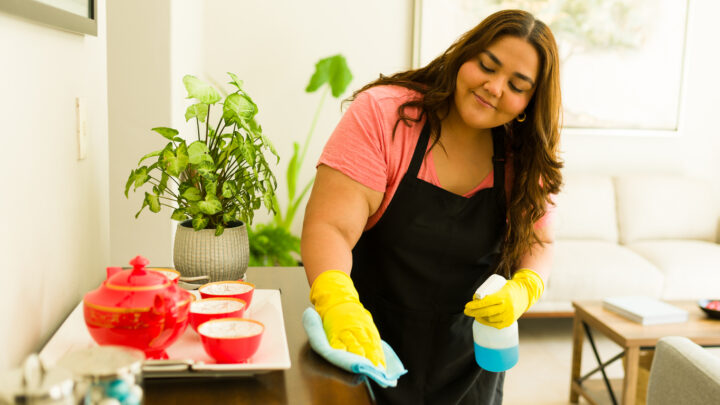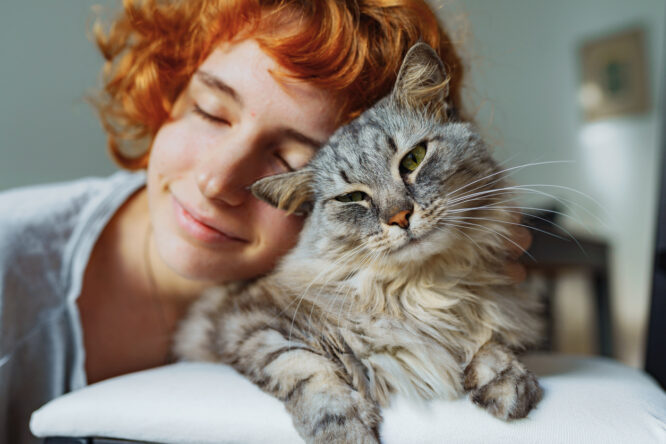You might have the best intentions, but when you’re in someone else’s home, even small things can come across as disrespectful.

Sometimes it’s not what you do—it’s what you forget to notice. These are the little habits that can quietly make you seem rude when visiting, even if no one says anything at the time. While you don’t want to have to walk on eggshells or feel uncomfortable, it might be a cue to just be a little more aware of how you’re behaving in someone else’s space.
1. Walking in without properly greeting the host

Rushing in with a quick “hey” or barely acknowledging the person who invited you can come off as dismissive. You don’t need a grand entrance, but pausing for eye contact and a proper hello sets the tone. It shows you recognise that it’s their space, and you’re entering it with a bit of awareness. Starting off warmly helps everyone relax, and it doesn’t take much effort at all.
2. Leaving your shoes on when everyone else hasn’t

If you walk into a home where it’s clearly a shoes-off space—everyone’s barefoot or in socks, and you keep yours on, it sends the wrong message. It can look like you don’t think the rule applies to you. If you’re unsure, just ask. Most hosts will appreciate the consideration. It’s a small gesture that signals respect for their space and the way they live in it.
3. Heading straight to the fridge or cupboards

Even if you’re close friends, helping yourself to food or drinks without asking can come across as overfamiliar. It shifts the vibe from guest to takeover without meaning to. It’s one thing if you’re told to make yourself at home, but even then, a quick “Mind if I grab something?” keeps the moment respectful. Assumptions rarely land well when you’re in someone else’s space.
4. Not offering to help—at all

Whether it’s clearing dishes or offering to grab something from the kitchen, doing nothing can read as indifferent. Even if the host says no, the offer matters. It tells them you see their effort, and you’re not just there to be served. You don’t have to jump into full clean-up mode, but standing there while they’re juggling everything looks more ungrateful than you might realise.
5. Talking too loudly or dominating the space

Some people naturally bring a lot of energy into a room, but if you’re not paying attention to the tone of the space, it can come across as disruptive. Volume, pace, and how long you talk all shape the atmosphere. Being a guest means blending in a little, not taking over. When in doubt, match the host’s energy. It shows you’re tuned in, not just performing.
6. Ignoring the vibe if kids or pets are around

If a toddler’s trying to nap or a nervous dog is pacing, barging in with big movements or loud greetings can unsettle the whole house. Not everyone wants their kids or pets overstimulated by visitors. Just paying attention to what’s going on shows emotional intelligence. You don’t need to tiptoe around, but a little awareness goes a long way in making everyone feel at ease.
7. Taking calls or scrolling endlessly while you’re there

Unless it’s an emergency, being glued to your phone while you’re visiting someone’s home is an easy way to seem checked out. It sends the message that being there isn’t really your priority. Even glancing at your screen repeatedly can change the energy. When you put your phone away, it shows you’re present, and that the visit actually matters to you.
8. Making jokes about their decor, food, or routines

Even light teasing can come across as judgement when you’re in someone’s home. Calling something “quirky” or poking fun at a snack choice can make the host feel self-conscious fast. People are sensitive about their space—it’s a reflection of them. You might mean well, but comments that seem harmless can land awkwardly. Compliment something instead. It’s always the better option.
9. Hanging back when it’s time to say goodbye

Dragging out your exit can be uncomfortable, especially if the host is tired or winding down. If they’re doing the polite hints—yawning, glancing at the clock—it’s your cue to wrap things up. Sticking around too long can make the whole visit feel a bit strained at the end. A smooth, respectful goodbye leaves everyone with a good feeling, and the door open for next time.
10. Treating the visit like a casual drop-in

Showing up late without texting, acting like it’s fine to just pop by, or expecting the host to entertain with no warning can come off as inconsiderate. Not everyone’s in the mood to host on short notice. When you show that you respect their time and space—by planning ahead or checking in—it makes the whole interaction feel lighter and more thoughtful.
11. Leaving a mess behind you

Whether it’s wrappers, used glasses, or muddy footprints, leaving behind signs of your visit without a second thought puts the clean-up on the host. It doesn’t matter how small—it’s the principle. Even straightening up your cushion or rinsing your cup sends the message that you respect their space. It takes seconds but means a lot more than people realise.
12. Not acknowledging the effort they made

Someone probably tidied, prepared, or shifted their plans to make that visit happen. Even if it’s casual, a genuine thank you makes a huge difference in how appreciated they feel. It’s not about flattery; it’s about noticing. When someone opens their home to you, recognising their effort is part of being a good guest—and it makes people want to invite you back.
13. Acting like the visit was just for you

Showing up, staying too long, barely asking questions, or talking mostly about your own stuff can turn a shared moment into a one-sided performance. Even if the host enjoys your company, it can wear thin. Good guests stay curious. They tune in. They treat the visit like a shared experience, not a stage. That simple change makes you memorable in the best way possible.




